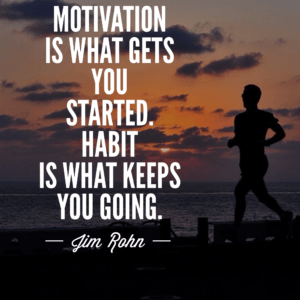Mornings have this awesome potential to set the tone for the entire day. Getting a head start by calming your mind can make a huge difference in handling stress and boosting your mood. Think of your morning routine as the foundation for a great day.
1. Breathing exercises are a game-changer when you’re looking to tackle morning stress. Taking deep, slow breaths calms the nerves and slows a racing heart. You can try inhaling deeply through your nose, holding for a moment, and then releasing it slowly. Feels like a mini-vacation for your brain right?
2. Let’s not forget the magic of simple stretches. Waking up your body doesn’t just get your blood flowing—it sends a rush of oxygen to your brain, clearing up that foggy feeling. Spend a few minutes reaching up high, touching toes, and doing gentle neck rolls to increase focus and mental clarity.
3. Journaling in the morning? Yes, please! This quiet time for reflection can help set clear intentions for the day, provide a mental dump of worries, or just express gratitude. All it takes is jotting down anything that comes to mind and watch it transform your day. Morning pages, as some call them, can be both liberating and inspiring.
The Energizing Power of Movement: Physical Activities for a Happier Mind
Physical exercise isn’t just about getting fit—it supercharges your mind too. Working out releases endorphins, those natural mood lifters, making everything seem a lot less stressful.
4. A walk in nature isn’t just a walk—it’s your ticket to a better mood and creativity boost. Think of it as combining the perks of exercise with the calming vibes of the great outdoors. Get out there, take in the fresh air, notice the little details around you—leaves, flowers, or even the sound of birds. Your mind will thank you.
5. Yoga can be this oasis of calm in our hectic lives, offering relief from stress while building mindfulness. The focus on breathing and movement helps keep you grounded, leaving you relaxed and refreshed. You don’t have to be a pro yogi—just rolling out a mat and trying a few stretches can do wonders.
6. And if you’ve never thought about dancing your stress away, it’s time to hit the play button on your favorite song. Dancing isn’t just fun—it’s a full-body workout. The movement, music, and rhythm combine to create this powerful release of tension. And you know what? It’s pretty hard to feel down when you’re busting a move.
Mindfulness in Moments: Short Exercises for Quick Mental Relief
Life gets hectic, and finding time for a mental break can seem impossible, right? But even the busiest schedules can fit in a bit of calm. Short exercises designed to bring quick relief can sneak some peace into your day without demanding hours.
Ever heard of the 5-minute meditation? Perfect for those who think meditation needs time and commitment, these brief sessions let you steal a few moments of peace whenever you need it. Close your eyes and focus on your breath, letting go of the chaos around you. It’s that simple.
Progressive muscle relaxation is your secret weapon against anxiety. Starting from your toes, tighten and then slowly release each muscle group as you work your way up your body. This technique can really knock out stress and leave you feeling calmer in a flash.
Have you tried visualization exercises? Picture yourself in a place that brings you joy or peace—a quiet beach, a lush forest, or wherever you feel most comfortable. Spending just a few minutes imagining this scene can shift your mindset to a more positive outlook.
Evening Wind-down: Recharging Mental Energy Before Bed
Evenings are the perfect opportunity to recharge and relax your mind. A soothing end to the day sets you up for a restful night, which is vital for mental well-being.
Creating a personal evening routine can be magical for your mental peace. Think of calming activities that help your brain wind down. This could be dimming the lights, listening to calming music, or even a warm bath—but whatever works best for you.
Reading before bed acts like a mental escape. Swapping screens for books helps reduce blue light exposure, making it easier to drift into sleep. Plus, immersing in stories can be a captivating way to forget the day’s stress and fall asleep with a peaceful mind.
Gratitude journaling takes only a few minutes but packs a punch. Writing down a few things that went well or that you’re thankful for focuses your mind on positives, easing pre-sleep worries and improving sleep quality.
Good sleep hygiene is key for mental restoration. Create a calm, tech-free zone. Keep a consistent bedtime, limit caffeine, and your mental gears will slow down, leading to better sleep and a rejuvenated you come morning.


